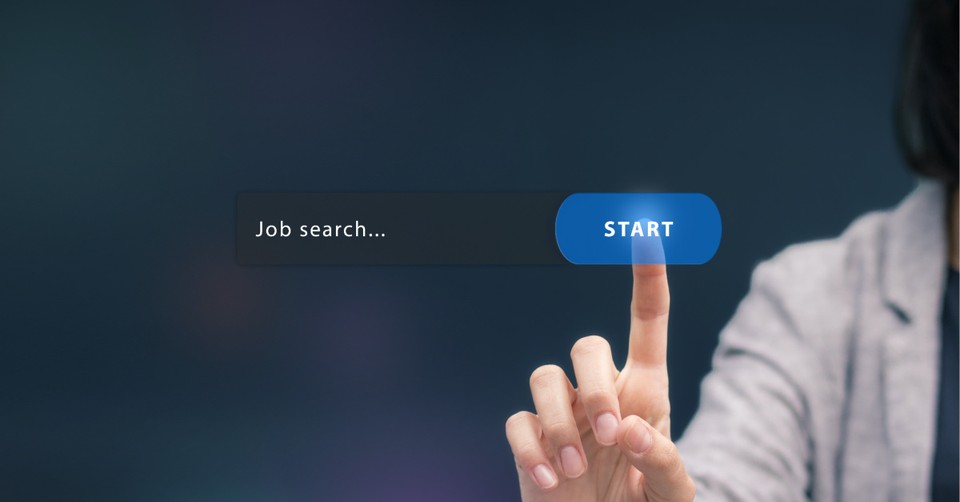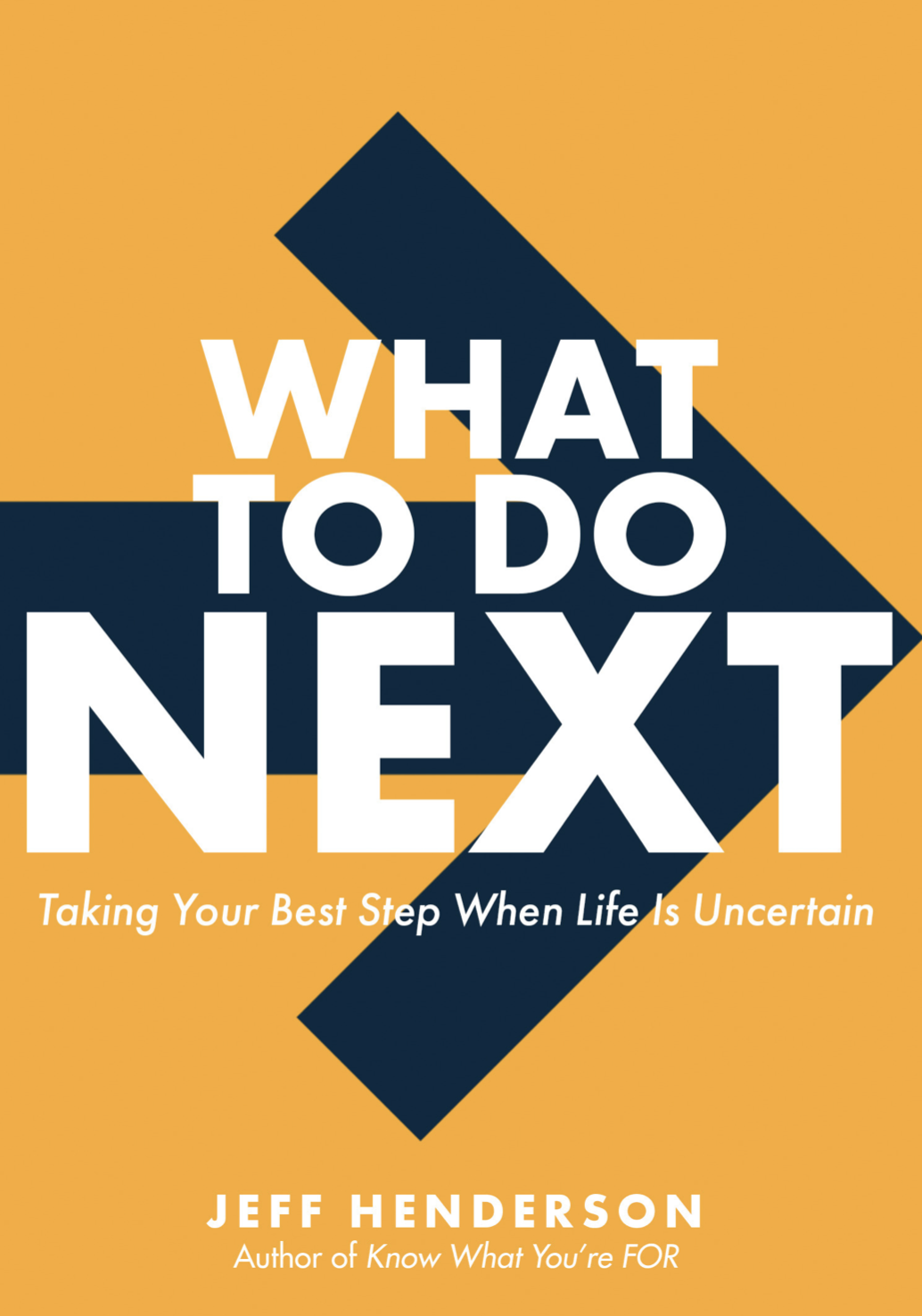Should I Stay or Should I Go?

I remember driving away from the Chick-fil-A headquarters in January of 2003, my last day as a staff member. My office was packed up in my back seat, and there was a lot of uncertainty in the driver's seat.
I was leaving to join the early days of Buckhead Church — an experiment where the preaching was on video. It was one of the first video multi-site churches in the country. I was exchanging a lot of certainty (and chicken sandwiches) for uncertainty and an unproven idea. The fear within me kept asking, "Should I stay or should I go?" The doubt inside me asked, "How do I know?"
At some point, this is a part of all of our stories. Chances are you know someone who is there right now. They are trying to figure out what to do next. (That someone might actually be you.) There are a lot of risks associated with a leap like this. For starters, there's the financial risk, especially if the idea is unproven. Then, your identity can take a hit because the second question people ask when they meet us is, "What do you do?"
It's why, for many people, what's next is so scary they simply put their heads down and hold on to what's in front of them. After all, security is found where we are, right? Well, maybe. Sometimes, the greatest risk isn't leaving. Sometimes, the most significant risk is staying.
But again, how do you know? Should you stay or should you go?
It's a question millions of people are asking each month. On average, four million people are walking away from their current employer each month. It even has a name now – the Great Resignation. And while there are lots of different reasons why, all of them wake up at some point and ask, "What do I do next?" Whether you're one of those four million each month or you are considering joining their ranks, it's helpful to process this decision through five questions. If you're married, these questions will be extremely helpful for you and your spouse.
Typically, one spouse is more comfortable with risk, and the other is more comfortable with security. If you're the risk-taker, these questions will help stimulate some helpful (and maybe uncomfortable conversations.). However, I would rather have uncomfortable discussions before a decision than after one. When my wife Wendy and I were considering the Chick-fil-A decision back in 2003, we wanted to ensure we both agreed that this was the right decision. When the hard days arrived, like they always do in any job, it was so helpful to remind each other that we signed up for this together. This was a mutual decision. It helped us weather the tough days and appreciate the good days even more.
Over the last 20 years, I've made other career decisions like this. Each one involved a certain level of risk. I'm often asked how we can eliminate risk with a career decision like this. Unfortunately, I don't think you can. There will always be some level of risk associated with a decision like this. At the same time, it doesn't have to be a leap over the Grand Canyon. You can't eliminate risk, but you can shrink it. Instead of the Grand Canyon, these five questions can shrink your risk to more like a mud puddle. Sure, you might get wet and muddy, but you won't plunge thousands of feet below.
All that said, let's get started on processing these five questions. They might not bring you the complete answer, but they will bring clarity.
5 Questions to Determine if You Should Stay or Leave Your Job
1. Are you moving toward something or away from something?
One of the other trends we're discovering in the Great Resignation is that often people are returning to the jobs they left. They discovered that the grass isn't always greener on the other side. Sometimes, we leave because we're tired, bored, or angry. I get it. But those are reasons to start processing your next move. They aren't reasons why you should leave.
It takes a lot of honesty and self-reflection to get to the answer to this question. It also helps to process this out loud with people you trust. There's a tell-tale sign that can give you the answer. If you are complaining more about where you are than dreaming or talking about what's next, it may signify that you are moving away from something.
When I made the move from Chick-fil-A to Buckhead Church, I loved the company and the people there. I still do. But the idea of helping Buckhead Church in the early days and the potential it could provide was irresistible to me. In some ways, it ruined my Chick-fil-A career because I was fascinated and intrigued with the possibility of launching this church.
That said, I made sure that I left Chick-fil-A extremely well. I wrote a hand-written note to everyone in the marketing department and the Executive Team. After all, if Buckhead Church didn't work out, I wanted to make sure I could come back! Even so, the risk would have been worth it because Wendy and I knew what we were moving toward was worth it.
2. What is your financial runway?
You knew we would have to start talking about money at some point, right?
If you're moving from one job to the next, this isn't as much of an issue. If you're moving from a job to a start-up or your own venture, it is.
Either way, getting your financial house in order is something we will never regret. One of the most heart-breaking situations I see is when someone discovers what's next for them, but they aren't in a position to pursue it because they are in too much debt.
For example, early in our marriage, Wendy and I went through two financial small groups at our church. These groups were pivotal not only in our marriage but also helped us take the leap from the business world to the non-profit world despite taking a huge pay cut.
Before asking, "Should I stay or should I go?" a better question to ask is, "How many months could I go without a paycheck?" Dave Ramsey calls this an emergency fund. I've also heard it said that entrepreneurs should have at least one year of revenue before pursuing their venture full-time.
Your answer will depend on your situation, but here's what I know. The closer you get to financial freedom, the better position you'll be in to pursue what's next.
3. What are your top five strengths?
Something good happens when we're good at something. It's called our strengths, and it's often the pathway to follow to find what's next. The problem with many folks is they've never discovered their strengths.
Years ago, I read Now, Discover Your Strengths by Marcus Buckingham. It still impacts me to this day. The book comes with an assessment helping you determine your top five strengths.
Your strengths and gifts are clues to what's next. They are also helpful guides to whether you should stay or go. The question I ask when considering a move is, "Will this next opportunity allow me to leverage my strengths more than where I currently am?"
4. Who are the top ten people of influence in your personal network?
It's true. Who you know is often more important than what you know.
It's why building your network is important. It's also the very first action someone should take if they lose their current job.
Too often, we start working on our resumes or scouring LinkedIn for job opportunities. And sure, that's not wrong. It's just not the first action we should take. The first step is to start calling the top ten people with the most remarkable connections in our personal network. In other words, you need their help in expanding your network.
Reach out to them, ask them to go to coffee, explain your situation and then ask for their advice. Then, at the end, ask them to connect you with someone they know that could help you take a next step.
Too often, we wait on a crisis for this to happen. The wise person understands they should always be building their network. A strong, personal network helps provide clarity on whether you should stay or go because the more people you know, the more opportunities seem to flow.
5. What do the people who know you best think of this move?
One of the strategies I employed during this decision came from a verse in the Bible, Proverbs 15:22, "Plans fail for lack of counsel, but with many advisers they succeed."
One of the best actions you can take to figure out what's next is to surround yourself with advisers. In each of the big career moves Wendy and I have made over the last 25 years, we have sought wise counsel and asked for a green light to move forward. This includes our parents, mentors, and friends. Their wisdom has given us the confidence to move forward or the patience to stay the course. They've not only helped us make the best decision, but they've also helped us with the right timing. As John Maxwell writes in the 21 Irrefutable Laws of Leadership, "The right decision at the wrong time is the wrong decision."
Wise counselors help you do both.
As I mentioned in the beginning, these five questions might not answer the question, "Should you stay or should you go?" What they will do is move you closer to the right decision. And that's often the goal with a decision like this. Don't get mired in the muck of fear and uncertainty. Keep moving. Keep processing. Keep going.
At some point, you'll not only find what's next. What's next will find you.
Jeff Henderson's new book, What to Do Next: Taking Your Best Step When Life Is Uncertain, releases August 23, 2022. You can purchase it here.

Jeff’s Website: https://jeffhenderson.com/
Jeff’s Social Media Links:
https://www.linkedin.com/in/jefferyehenderson/
https://www.facebook.com/jefferyehenderson/
https://www.instagram.com/jefferyhenderson/?hl=en
https://twitter.com/JeffHenderson

Originally published July 21, 2023.





